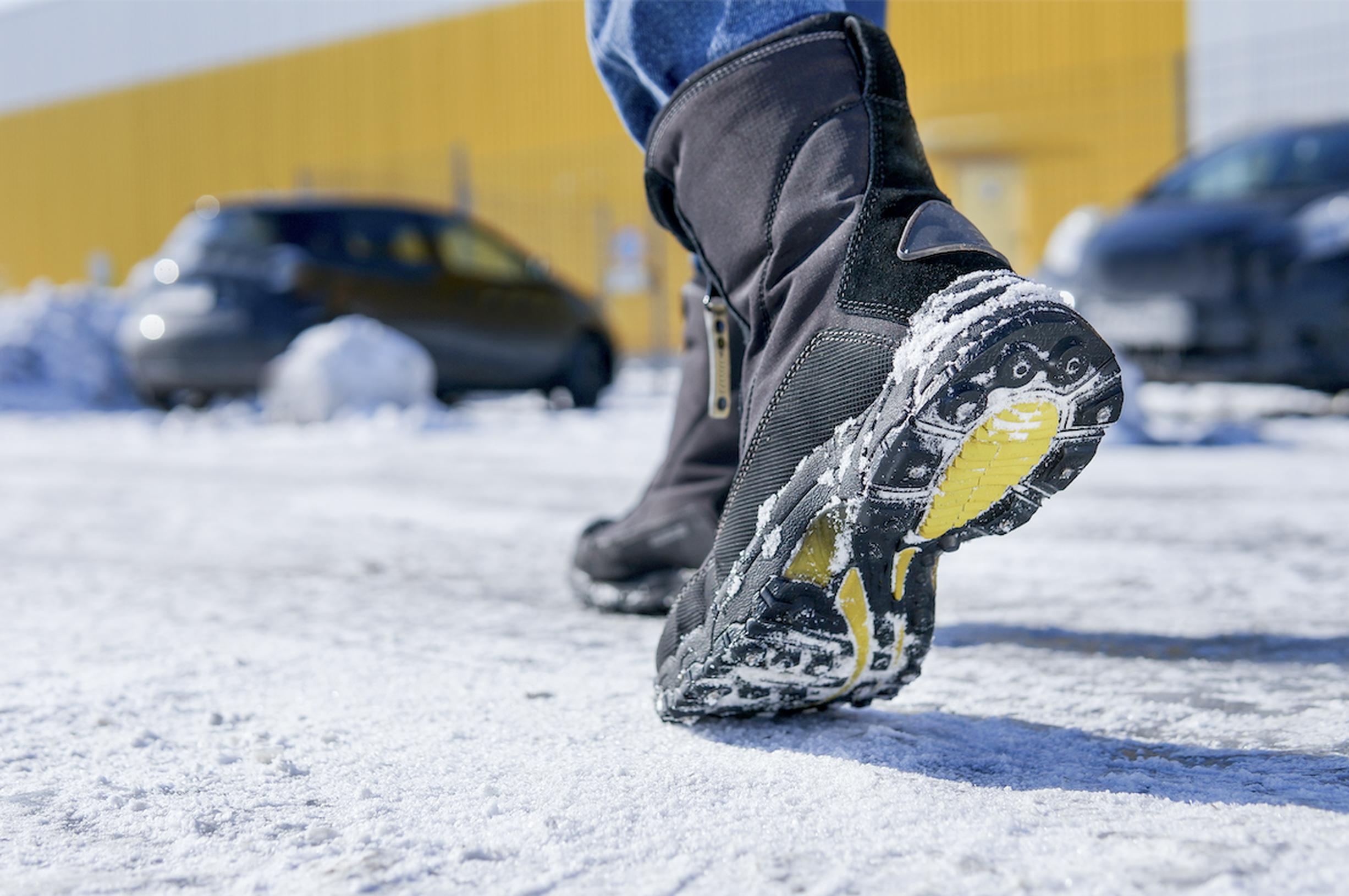

Slips, trips and falls are an all common occurence in UK workplaces. Over 2022/23 a Labour Force Survey (LFS) revealed that 561,000 workers sustained a non-fatal injury according to self-reports. In comparison the Health and Safety Executive (HSE) points out that this figure is higher for the same period, at 60,645 employee non-fatal injuries, as reported by employers in 2022/23, according to RIDDOR’s framework (Reporting of Injuries, Diseases and Dangerous Occurrences Regulations 2013).
Within RIDDOR’s reporting the largest culprit of non-fatal injuries is caused by slips, trips or falls on the same level, accounting for 32% of injuries. In agreement, RoSPA – a leading voice in health and safety that campaigns to reduce avoidable accidents – echoes the fact that slips and trips are the most common cause of injury. Except its view is that the figure is higher at 40%, and that it costs employers over £500 million per year.
Within the UK our winters can often be icy and cold. The public expects howling winds, rain, frost, ice and temperatures below freezing during the winter months. With that, outdoor office areas can naturally get very slippery and dangerous in these icy, wintery conditions.
Places like car parks and pathways leading to the office can become hazardous if they are not gritted when temperatures drop below freezing. Therefore, many people come to appreciate the importance of gritting, and not only the roads that motorists drive on in these conditions; but also, importantly, these outside areas. We notice this in many shopping centres, high streets and offices. Failing to grit, though, can have serious consequences if someone slips on the ice. Especially if this occurs early in the morning or late at night and the impact renders an employee unconscious.
However, the challenge faced by many organisations is knowing when to grit. Sure, weather forecasts predict an approximate temperature over a certain area or region and can provide some foresight about what is to come, but they aren’t hugely accurate. Relying solely on this information may result in over gritting, which is a bit of a waste of resource and expense – or it can lead to failing to grit early enough, such as before staff arrive for work or leave to go home, which could be the cause of a serious incident.
Therefore, to get accurate temperature information to help improve decision making, readings must be taken outside the office regularly. However, to do this manually isn’t really practical and also relies on weather forecasts to help inform staff when to do it – ultimately it just adds another layer into the process and doesn’t necessarily improve the result. Rather than using manual procedures to measure temperatures, it is more effective to use an automated solution that records outdoor temperatures, that can send teams alerts as and when certain temperature parameters are reached.
An automated approach measures location temperatures in real time accurately for facilities management teams to base decisions on day and night. Today many of these outdoor wireless temperature sensors are easy to install too. Data recorded is sent via a 4G gateway to an online portal that records the temperature 24/7. With access, teams can view actual temperatures on dashboards. Historical information is also displayed in charts.
Real-time data enables staff to work out when it is best to grit their outdoor facilities, with alerts set up to warn teams when certain temperatures have been reached, for example, at 2° C. Additionally, or when 1°C is reached another alarm could be triggered to inform staff to act further.
Today these solutions are flexible and easy to install too and don’t require access to organisations’ networks. What is more, other sensors to monitor other conditions like CO2, humidity, power, energy and leaks can be added at any time without necessarily adding further gateways.
Guessing when to grit is no longer necessary. Today, decisions to grit can be based on facts and data instead of inaccurate weather forecasts. Sensor technology, the internet of things, automated workflows and access to real-time data is paving the way forward for better facilities management and safer facilities when used in tandem with appropriate resources. Furthermore, using this automated approach could also free up employees’ time to focus on other operational tasks.
Chris Potts is marketing director at ANT Telecom, a communications specialist working to help organisations to better protect employees and business through integrated communication solutions for telephony, IOT/IIOT, lone worker safety and critical alarm management
TransportXtra is part of Landor LINKS
© 2026 TransportXtra | Landor LINKS Ltd | All Rights Reserved
Subscriptions, Magazines & Online Access Enquires
[Frequently Asked Questions]
Email: subs.ltt@landor.co.uk | Tel: +44 (0) 20 7091 7959
Shop & Accounts Enquires
Email: accounts@landor.co.uk | Tel: +44 (0) 20 7091 7855
Advertising Sales & Recruitment Enquires
Email: daniel@landor.co.uk | Tel: +44 (0) 20 7091 7861
Events & Conference Enquires
Email: conferences@landor.co.uk | Tel: +44 (0) 20 7091 7865
Press Releases & Editorial Enquires
Email: info@transportxtra.com | Tel: +44 (0) 20 7091 7875
Privacy Policy | Terms and Conditions | Advertise
Web design london by Brainiac Media 2020